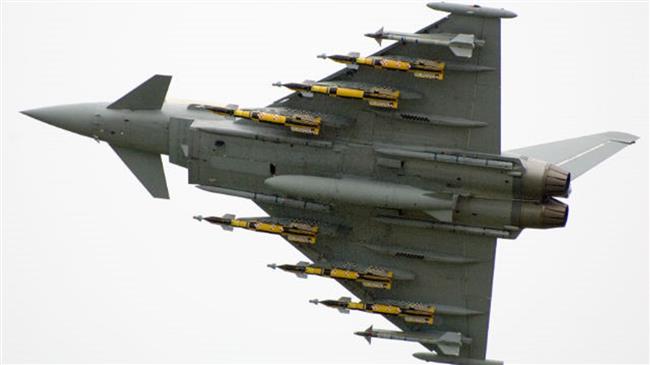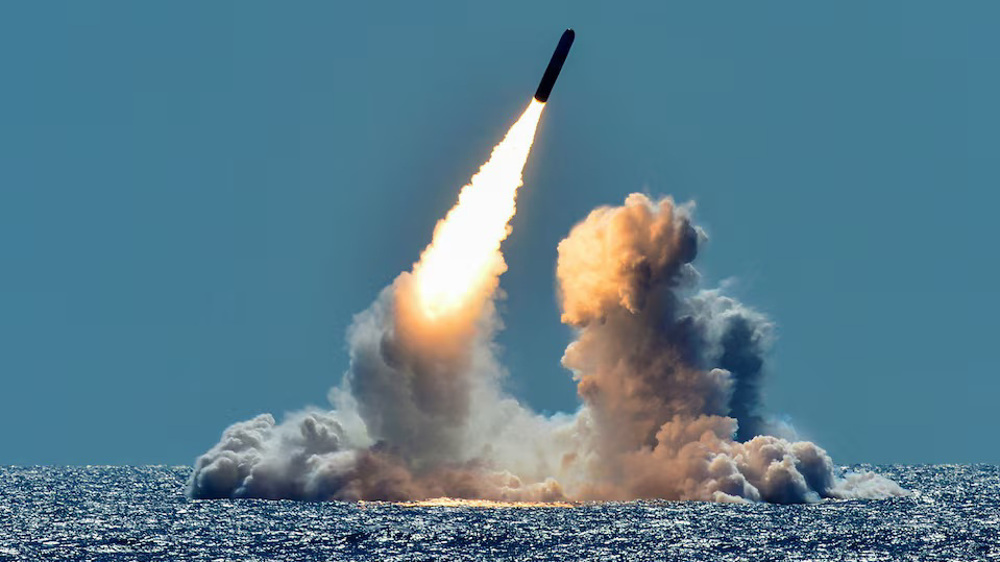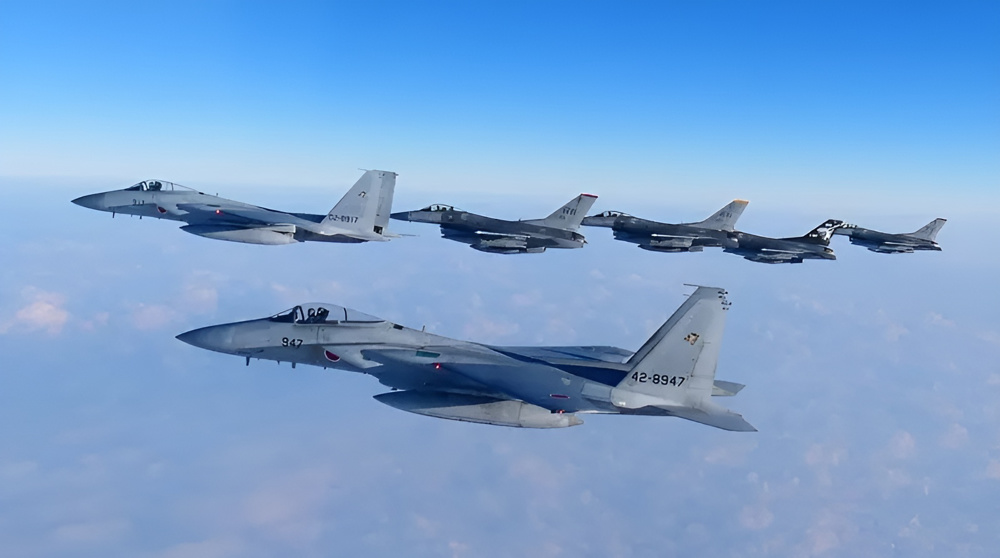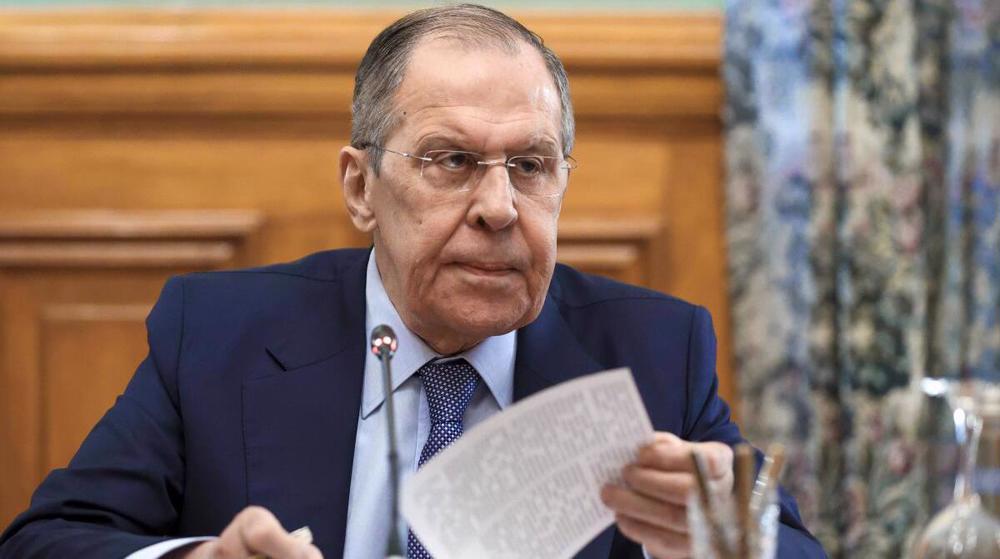US senators seeking to block Trump's Saudi arms sales
US senators are pushing hard against a raft of planned arms sales to Saudi Arabia after President Donald Trump said he was circumventing Congress to push them through.
The White House said last month it was making an emergency provision within the country’s arms control law to enable the sale of $8.1 billion worth of arms to the kingdom and the United Arab Emirates, the US’s strongest allies in the Persian Gulf. The recourse helps the president spare congressional review for the exports.
On Sunday, The Hill, which reports on congressional affairs, said the Trump administration had cited “alleged threats from Iran” to justify resorting to the provision. The paper, however, added that senators had introduced 22 resolutions -- one for each sale -- over the previous week to block the deals.
The sales include warplane engines, maintenance equipment, Paveway precision guided munitions and mortar rounds. The arms deals also foresee the setting up of facilities in the kingdom that would manufacture the precision munitions. The UAE would also be receiving Paveway smart bombs and laser-guided rockets as well as helicopter equipment among other things.
The paper said the senators had cited “frustration” with Trump’s actions that had even prompted Sen. Lindsey Graham (R-SC), a staunch ally of the president, to support action at the chamber against the arms sales.
“The fact that Lindsey is leading the resolution tells you that things are shifting inside the Republican caucus,” said Sen. Chris Murphy (D-Conn.). Graham, himself, has foreseen “a lot of support” for the resolutions.
The US has been unreservedly supporting a 2015-present Saudi-led war against Yemen that seeks to bring back the impoverished country’s former Riyadh-backed officials. The American patronage has featured aerial refueling, which the US only stopped earlier in the year after the Saudi-led coalition grew independent of it, as well as logistical and commando support.
Tens of thousands have died since the onset of the war, and the entire Yemen has been pushed close to the edge of outright famine.
A year after the war was launched, Trump made his maiden foreign visit to Saudi Arabia, announcing more than $100 billion in arms sales to the kingdom.
Sen. Rand Paul (R-Ky.), a co-sponsor of the bid to block the sales, said, “I think there’s a growing number of people and a growing resistance to allowing the government to operate by emergency. And so I think that you’re going to see the biggest vote we’ve had, and it may well be a significant majority of the Senate is going to resist allowing the president to sell arms without our approval.”
Lawmakers had been holding up the sales amid concerns about civilian casualties in the war and fury at Saudi Arabia over its killing of US-based journalist Jamal Khashoggi in Turkey last year, The Hill added. Khashoggi, a Washington Post columnist and outspoken critic of Saudi Crown Prince Mohammed bin Salman was killed and dismembered last May after entering the Saudi Consulate in Istanbul, but the US administration refused to let the murder adversely affect its Saudi ties.
The daily, meanwhile, said a bipartisan pair of senators were even trying to force a vote on all aspects of US “security assistance” to Saudi Arabia.
On Monday, Chris Murphy (D-Conn.) and Todd Young (R-Ind.) will introduce a resolution to require that the administration report on Saudi Arabia’s human rights practices. Once Congress receives the human rights report, it can vote to end any aspect of the assistance.
“This administration has effectively given a blank check to the Saudis—turning a blind eye to the brutal murder of Jamal Khashoggi and allowing their ballistic missile program to expand,” Murphy said in a statement on Sunday. “Congress needs to change how we do business with the Kingdom. The process we are setting in motion will allow Congress to weigh in on the totality of our security relationship with Saudi Arabia, not just one arms sale, and restore Congress’s role in foreign policy making.”
Iran FM declares ‘good start’ as US–Iran talks conclude in Muscat
Iran strongly condemns 'terrorist' mosque blast in Islamabad
Iran enters talks backed by national power, popular support: MP
France, UK involved in assassination of Muammar Gaddafi's son: Reports
Shia mosque explosion in Islamabad kills more than 30, injures over 160
Iran defense minister in Azerbaijan to boost security, defense ties
Iran-US talks in Oman focus solely on nuclear issue: Envoy
Ex-PM Olmert admits Israel committing ‘ethnic cleansing’ in West Bank











 This makes it easy to access the Press TV website
This makes it easy to access the Press TV website